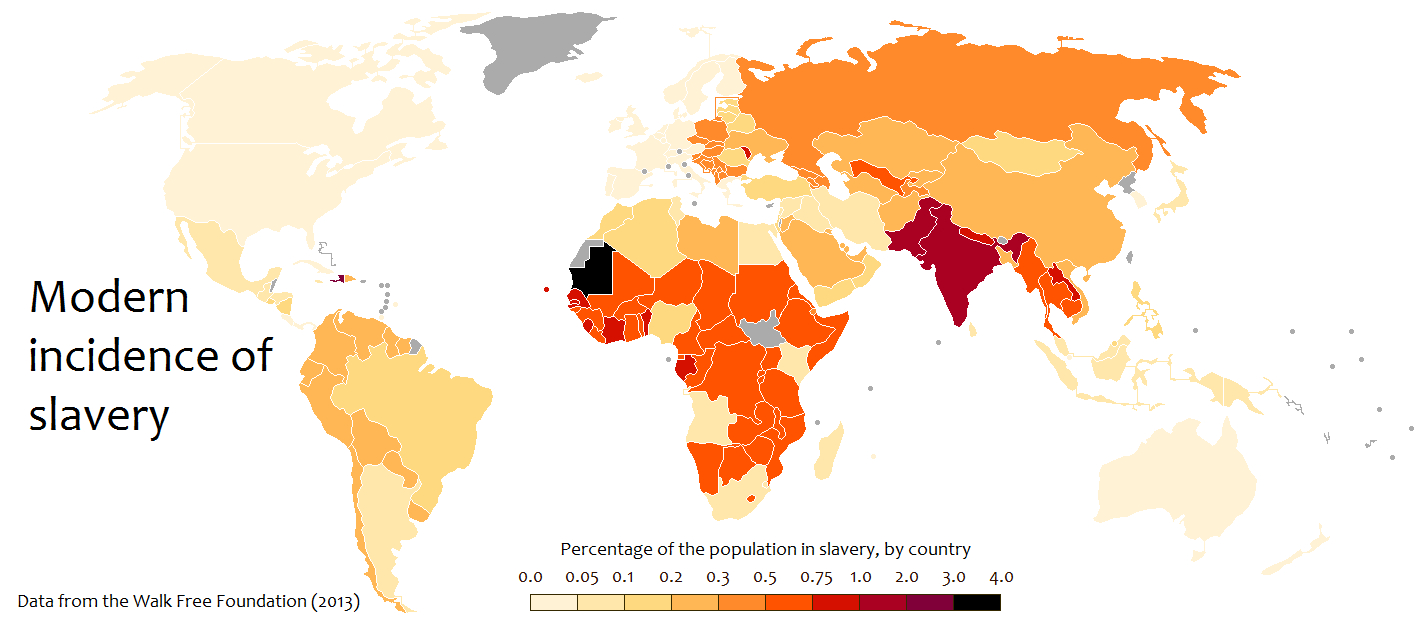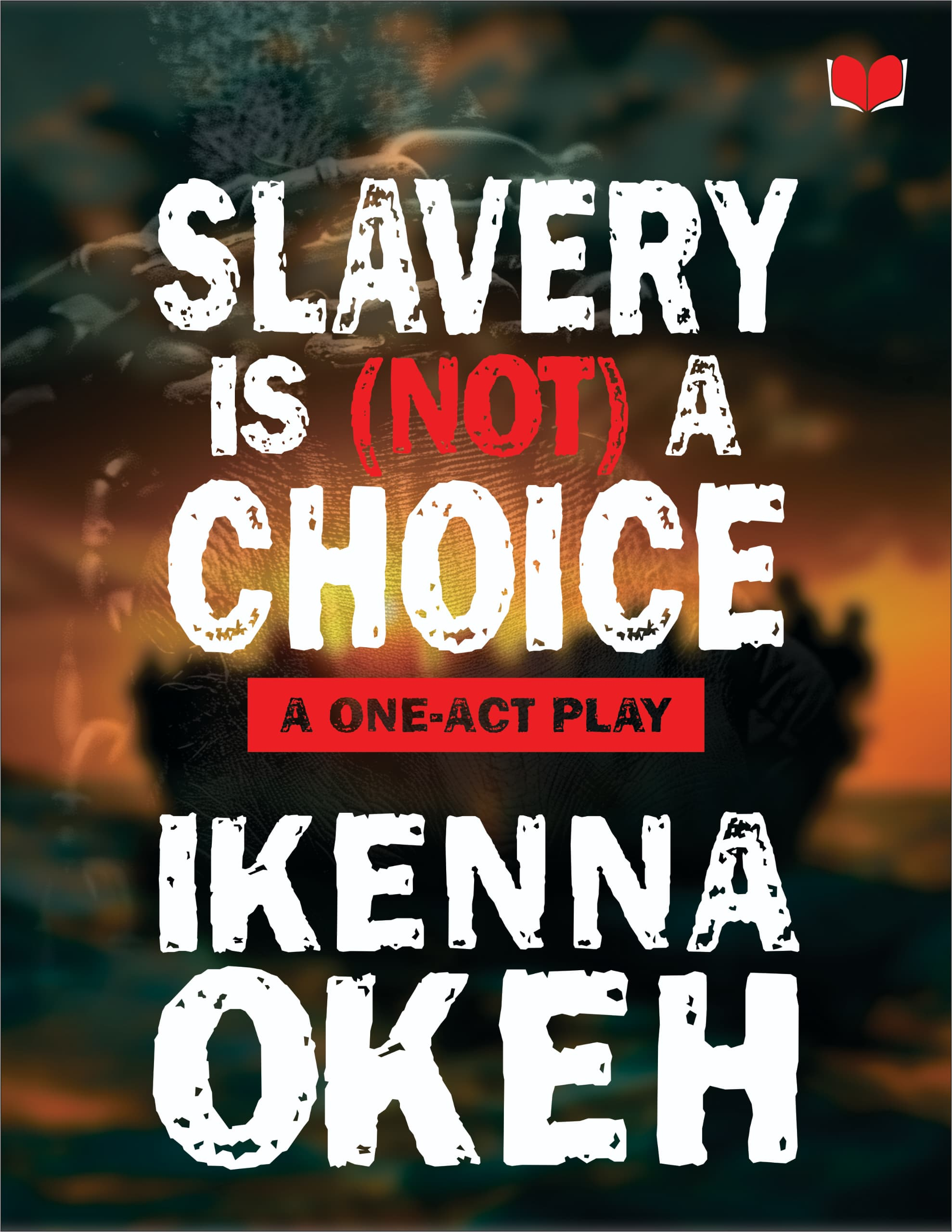Slavery was never abolished. It was only extended to include all the colours. - Charles Bukowski
A chronology of slavery throughout modern history
1444 - First public sale of African slaves in Lagos, Portugal;
1482 - Portuguese start building first permanent slave trading post at Elmina, Gold Coast, now Ghana;
1510 - First slaves arrive in the Spanish colonies of South America, having travelled via Spain;
1518 - First direct shipment of slaves from Africa to the Americas;
1777 - State of Vermont, an independent Republic after the American Revolution, becomes first sovereign state to abolish slavery;
1780’s - Trans-Atlantic slave trade reaches its peak;
1787 - The Society for the Abolition of the Slave Trade was founded in Britain by Granville Sharp and Thomas Clarkson;
1792 - Denmark bans the import of slaves to its West Indies colonies, although the law only took effect from 1803;
1807 - Britain passes Abolition of the Slave Trade Act, outlawing British Atlantic slave trade;
1807 - United States passes legislation banning the slave trade, effective from start of 1808;
1811 - Spain abolishes slavery, including in its colonies, though Cuba rejects the ban and continues to deal in slaves;
1813 - Sweden bans slave trading;
1814 - The Netherlands ban slave trading;
1817 - France bans slave trading, but ban is not effective until 1826;
1819 - Portugal abolishes slave trade north of the equator;
1823 - Britain's Anti-Slavery Society was formed. Members include William Wilberforce;
1833 - Britain passes Abolition of Slavery Act, ordering gradual abolition of slavery in all British colonies. Plantation owners in the West Indies receive 20 million pounds in compensation;
1833 - Great Britain and Spain sign a treaty prohibiting the slave trade;
1833 - Britain places a naval squadron off the West African coast to enforce the ban on slave trading;
1846 - Danish governor proclaims emancipation of slaves in Danish West Indies, abolishing slavery;
1848 - France abolishes slavery;
1851 - Brazil abolishes slave trading;
1858 - Portugal abolishes slavery in its colonies, although all slaves are subject to a 20-year apprenticeship;
1861 - The Netherlands abolish slavery in Dutch Caribbean colonies;
1862 - U.S. President Abraham Lincoln proclaims the emancipation of slaves, effective January 1, 1863;
1865 - USA: 13th Amendment of the U.S. Constitution banning slavery
1886 - Slavery is abolished in Cuba;
1888 - Brazil abolishes slavery;
1926 - The League of Nations adopt Slavery Convention abolishing slavery;
1948 - The United Nations General Assembly adopts the Universal Declaration of Human Rights (UDHR), including this article stating:
No one shall be held in slavery or servitude; slavery and the slave trade shall be prohibited in all their forms. - UN Universal Declaration of Human Rights (UDHR, 1948)
1962 - Saudi Arabia and Yemen only abolished slavery in 1962 after political pressure from Britain;
1970 - Oman abolishes slavery;
Slavery and 'apartheid' are merely different sides of the same coin: deprivation of freedom...
1991 - South Africa repels the legal framework of ‘apartheid’.
The vote on June 17, 1991 that repealed the legal framework of Apartheid and began the process that would eventually abolish Apartheid as a whole was bitterly contested as many members of the white electorate sought to cling to the privileges afforded to them under 'apartheid'. The legal framework in question, consisting of four Acts, namely, the Population Registration Act of 1950, The Group Areas Act, the Land Act and the Separate Amenities Act.
2007 - Mauritania abolishes slavery after previous declarations in 1905 and 1981;
Libya
Libya is the main transit point for refugees and migrants trying to reach Europe by sea. In each of the last three years, 150,000 people have made the dangerous crossing across the Mediterranean Sea from Libya. For four years in a row, 3,000 refugees have died while attempting the journey, according to figures from the International Organization for Migration (IOM), the U.N.’s migration agency. - Time Magazine, Dec 1, 2017
Israel ?
The State of Israel currently does not have an official 'apartheid' policy nor laws to that effect enshrined in its constitution.
However, 'apartheid' in Israel still means: officials using the army, police, military courts, and draconian administrative detentions, not only to head off terrorism, but also to curtail nearly every avenue of non-violent protest available to Palestinians, as well as its Falasha (Ethiopian Jews) population.
Modern day examples of different forms of slavery:
-
prostitution
-
imprisonment without 'habeas corpus' or legal representation
-
trafficking of refugees
-
forced labor
-
financial debt
-
'mental' slavery
Henry Charles Bukowski (born Heinrich Karl Bukowski; August 16, 1920 – March 9, 1994) was an American poet, novelist, and short story writer.

